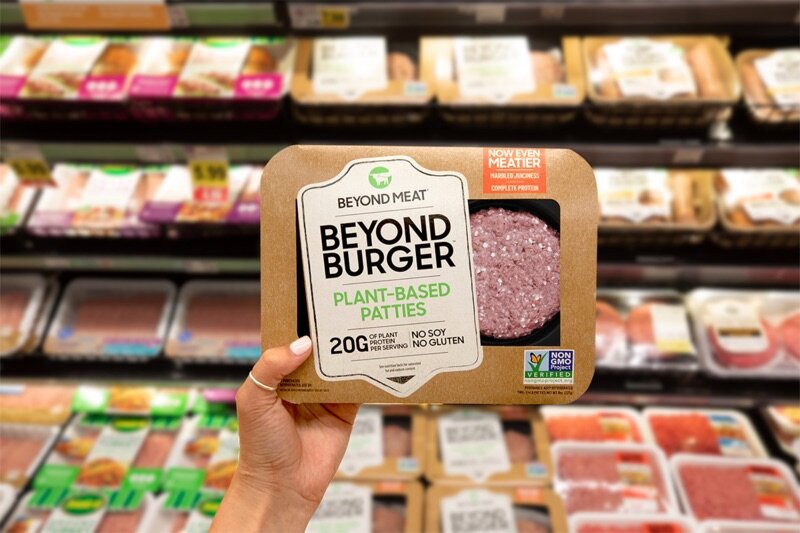“By shifting from animal to plant-based meat, we can address four growing global issues: human health, climate change, constraints on natural resources, and animal welfare.”
On Feb. 27, Beyond Meat Inc. reported a net loss of $0.5 million, which is about 1 cent a share. Compared to a loss of $7.5 million — 18 cents a share — in the third quarter of 2019, this was an improvement to close 2019 with.
During the week of Feb. 27, the market underwent the largest drop since the financial crisis of 2008, with all three indices losing nearly 10% each.
Beyond Meat’s stock price closed on Feb. 28, at $89.65, down 15% for the week.
Despite this drop and the loss in the income statement, the firm is showing growing performance and ascension towards sustainable growth.
Net sales rose 212% to $98.5 million, beating the expectations of $79.5 million by $19 million. The meat substitute company’s sales volume tripled and is expected to continue to grow.
Beyond Meat expects to have sales revenue around $490 to $510 million in the fiscal year of 2020.
Analysts were pleased by the performance, but investors were disappointed, which caused the share price to drop 6% in after-hours trading.
Shares of Beyond Meat, which went public May 2, 2019, are up over 40.4% this year while the S&P 500 is down nearly 8% due to the selloff caused by a stock market reaction to the coronavirus.
This is a perfect example of when analysts and investors don’t agree about a valuation of a company and its prospects.
Despite this setback, the firm is still poised to become an industry leader for the years ahead if it improves in key areas.
Beyond Meat currently has the first mover or pioneer advantage against competitors like Impossible Foods and Tyson Foods Inc.
However, the plant-based company needs product mix diversity, and more ventures in supermarkets and grocery chains.
Sales in restaurants and food service outlets made up about 59% of Beyond Meat’s revenue in the quarter.
It is very reliant on these clients and needs to find more ways for revenue generation.
Increased competition from traditional food companies and meat producers adds competition as Beyond Meat is continuing to rack up partnership deals with large national restaurant chains.
Places like Starbucks Corp., Dunkin’ Brands Group Inc., McDonald’s Corp., and Denny’s Corp. are among them.
Beyond Meat is also planning to invest in expanding its production capacity.
At the start of the 2020, the company only had enough capacity to make $700 million of its meatless products, but it expects to increase that capacity to $1 billion by the end of 2020 due to increased capital expenditures.
It also plans on nearly doubling its number of co-packers, from six to 11 this year, as it plots its course for international expansion in Europe and Asia.
This, however, will be delayed due to the ongoing global health crisis.
Right now, the primary goal of this firm is to lay the foundation for its success in the marketplace.
Every firm must learn to deal with short term and long-term horizon investors, and Beyond Meat isn’t an exception.
As society grows more health-conscious and plant-based, the value proposition the firm offers will be realized over the long
term.
The company has forecasted that its adjusted EBITDA or earnings before taxes and non-cash items depreciation and amortization will be unchanged from 2019 as it spends more on marketing, research and development and international expansion.
Beyond Meat is currently operating mainly in Canada and the United States. It hasn’t been a year yet since the firm went public.
Only time will tell of the results of Beyond Meat’s strategic plans and how well it stays the course for its vision.







